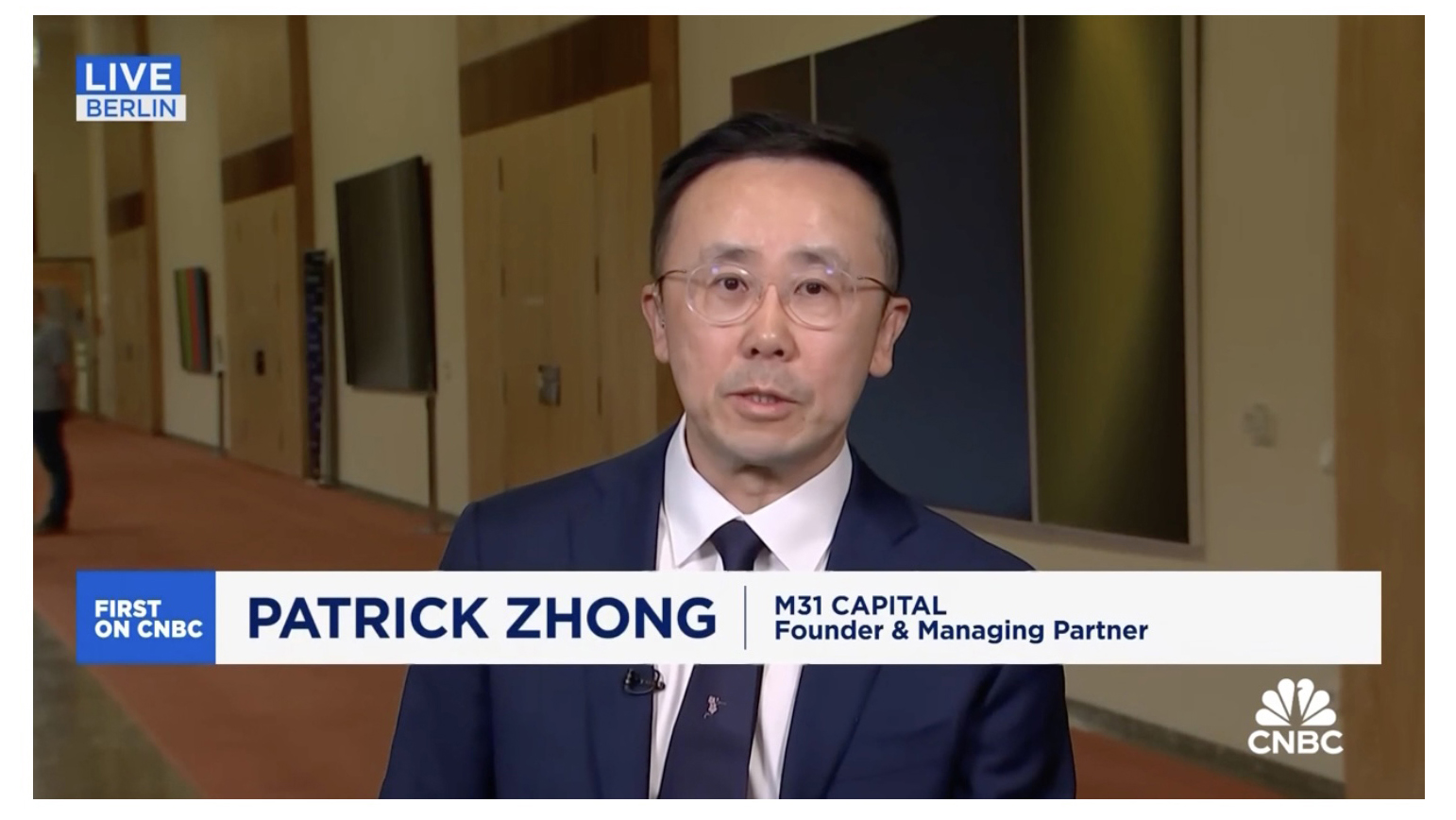
During a recent interview with CNBC at the Berlin Global Dialogue, Patrick Zhong, Founding Managing Partner of M31 Capital shared his thoughts on the current state of global markets. He stressed that we need to see the big picture of the world, and giving patince and constructive approach in reviving the global economy.
Below are his main points:
Reviving the global market requires patience and a constructive approach
The COVID-19 pandemic has had a lasting impact on global markets. Travel and communication restrictions have led to misunderstandings and market disruptions becoming commonplace. The market seems frozen and it will take time to recover. In the long run, it will be important to adopt a patient and constructive approach to revive the global economy.
Global Investors have become more positive about Chinese market
Many investors are already making direct or indirect investments in response to China’s recent stimulus package. For example, luxury companies in Europe have significant exposure to the Chinese market. Investors are not just intersted in Chinese securities but are also keenly looking at equities that are closely intertwined with China’s economic pulse, its consumers, and the trends shaping consumption.
Beyond the noise, see the big picture
As an investor, it’s important to look beyond the noise of individual events and focus on broader trends. People are paying too much attention to specific events and losing sight of the bigger trends. Over the last 30 to 40 years of global globalization, significant expertise has developed in different regions of the world. The innovation, particularly in supply chain management, is remarkable. It’s important to be aware of where these innovations are originating from.
The era has been marked by significant innovation
The post-COVID world is complex, and people are talking to each other less. We have seen a lot of surprises in the last 2-3 years, such as the innovation of AI and the development of the EV market. Innovation arrives when we least expect it, and it has marked this era significantly. It’s challenging to plan for, but it’s this very unpredictability that makes it so exciting. In large economies like the US and China, about 25% of the economies change every 10 years. Similar to a large language model, when you have enough data and robust activities, you tend to have very interesting surprises emerging from this. It’s a phenomenon that keeps us on our toes and drives us to explore new frontiers.


